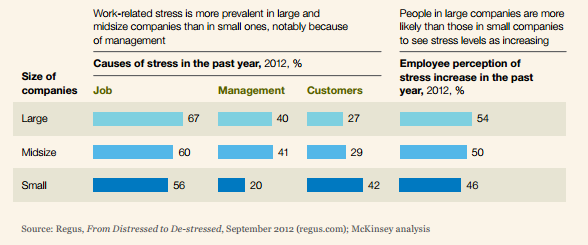Various
programs exist, such as Six Sigma, Lean Thinking, and the Theory of
Constraints, that all help businesses improve performance by decreasing inefficiencies.
Typically, these types of programs were created for heavy manufacturing
operations such as Toyota’s vehicle assembly line.
After showing
success in manufacturing, the same programs have been tried in service
industries as well. Starbucks has had an increased number of daily transactions
at stores implementing an improvement program, and therefore, is making more
money [1]. Seattle Children’s Hospital has decided not to spend millions of
dollars on an expansion project to care for more patients after implementing an
improvement program that increased the hospital’s capacity by reorganizing
their resources.
Improving
operations on a manufacturing line is one thing, but many argue forcing coffee
baristas and hospital nurses to cater services in the most efficient way
possibly greatly detracts from customer and patient care. One study done by
McKinsey published in “The Lean Management Enterprise” shows that employees of
larger organizations become more stressed when there is more management as seen
in figure 1 [3]. Managers implementing and enforcing improvement programs can
be a major source of stress for employees as mundane tasks such as creating a Frappuccino,
or starting an IV are timed by the second.
Figure 1.
It is
important to consider whether an employee in the service industry can provide
the same level of customer care when so much pressure weighs on them to run the
most efficient operation possible. One nurse argued that “procedure times can’t
always be standardized. For example, some children need to be calmed before IV’s
are inserted into their arms” [4] Therefore, supporters of improvement programs
need to consider the tradeoffs that exist when employees are urged to operate
more like robots and less like compassionate individuals.

No comments:
Post a Comment
Note: Only a member of this blog may post a comment.